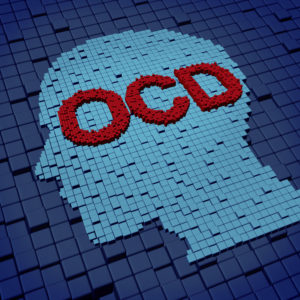 Obsessive-compulsive disorder (OCD) is a psychiatric disorder that affects approximately 1 in 100 Americans each year. This disorder is often misunderstood and those suffering struggle with the stigma associated with it. This stigma can negatively impact all areas of life. It’s time to stop the stigma with these 3 myths about OCD.
Obsessive-compulsive disorder (OCD) is a psychiatric disorder that affects approximately 1 in 100 Americans each year. This disorder is often misunderstood and those suffering struggle with the stigma associated with it. This stigma can negatively impact all areas of life. It’s time to stop the stigma with these 3 myths about OCD.
1. Having OCD Means You’re a “Clean Freak” or “Germaphobe”
OCD manifests differently in different people, which means no two cases are necessarily the same. Only a portion of people with OCD have a fear of germs or have compulsions of keeping themselves and everything around them clean. There are many fears or obsessions associated with OCD so to say that being afraid of germs or liking to be clean is a sign of OCD is perpetuating stigma. Common fears in people with OCD include:
- Fear of certain numbers, colors, words, etc.
- Fear of committing a sin
- Fear of germs
- Fear of a loved one dying
In addition to these fears, those with OCD also cope with compulsive behaviors. Many of these behaviors are repetitive and include:
- Hand washing
- Tapping or touching objects
- Counting
- Repeating certain movements
- Hoarding
Each patient is different and will experience OCD differently. In addition, symptoms can change over time, with some disappearing and new ones popping up.
2. Having OCD Means You Love Being Neat and Organized
How many of you have heard someone say, “I have OCD” while tidying up or trying to stay organized? High levels of anxiety accompany OCD, so, while you may think that someone enjoys being organized, they’re really doing it to stave off anxiety. It’s not something they enjoy doing; it’s something they feel as though they have to do to feel better.
3. Having OCD Means You’re Weak and Uptight
If you don’t have a psychiatric disorder, it’s difficult to understand those who do because a healthy mind doesn’t work the same way. Those with OCD aren’t weak because they can’t stop compulsive behavior. Their brain is wired differently making it difficult or even impossible for them to change their behavior without treatment. Getting upset or frustrated with someone who has OCD isn’t beneficial to anyone and it may make him or her feel worse about him or herself.
It’s important to know the facts before speaking on a subject. We all have our opinions, but, oftentimes, it’s those very opinions that keep the stigma surrounding psychiatric disorders alive. It’s this stigma that often prevents people from seeking treatment for one reason or another.
To getting you back to your best self,
Lori Calabrese, MD
